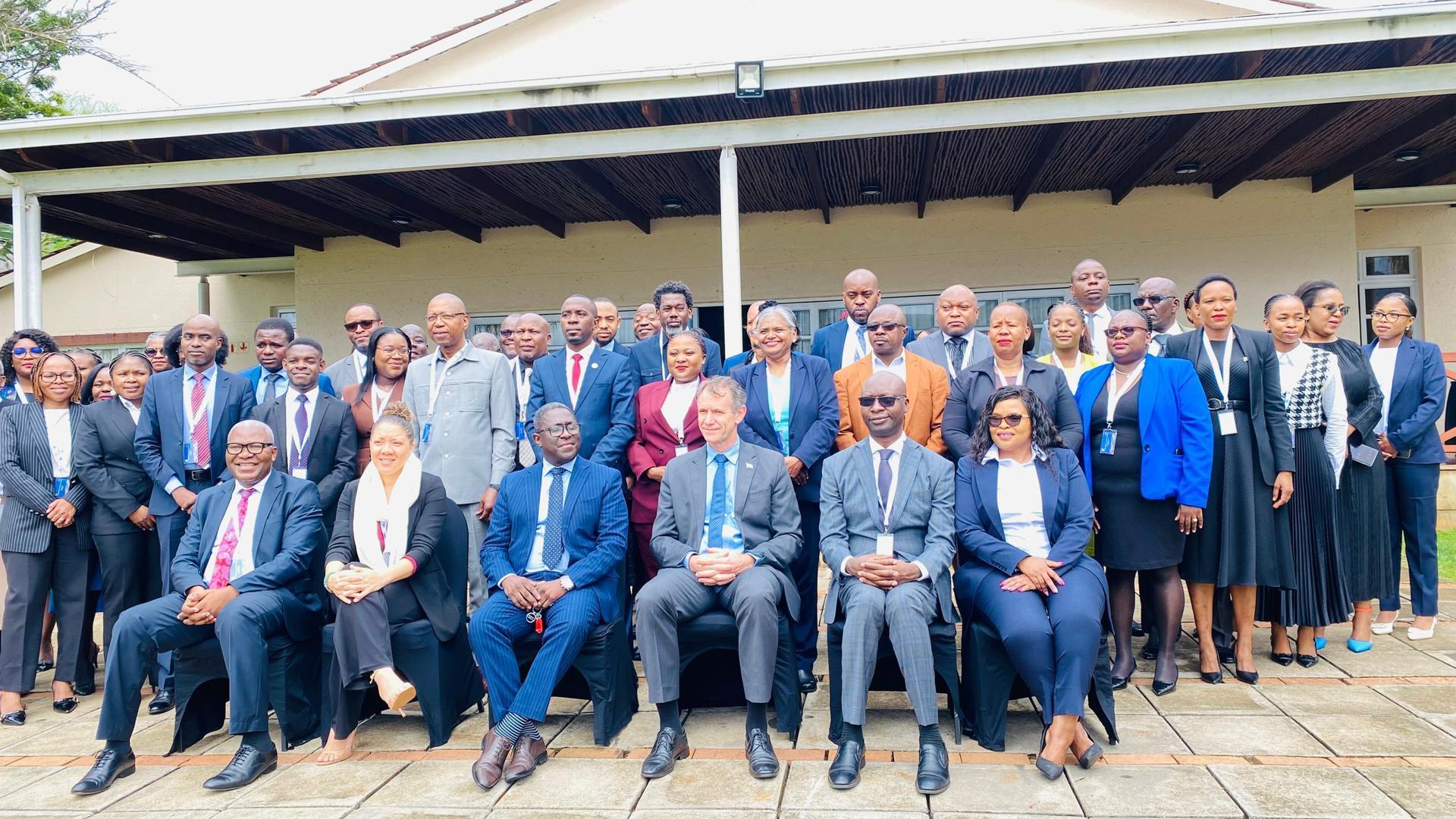By Delisa Magagula
Africa-Press – Eswatini. Eswatini has positioned itself as a key player in regional financial-crime prevention as it hosted the 4th SADC Anti-Money Laundering and Countering the Financing of Terrorism (AML-CFT) Committee meeting from 19–20 November 2025 in Ezulwini.
Minister for Finance Neal Rijkenberg used the opening session to outline government’s ongoing reforms in the sector, telling delegates that the Kingdom remains firmly committed to strengthening the legal, institutional and operational framework for combating financial crimes. He said the reforms were aligned with regional expectations.
“We have taken concrete steps to address deficiencies previously identified in assessments, and we continue to prioritise legislative amendments, enhanced financial intelligence, improved supervisory coordination and increased private-sector engagement,” he told officials gathered at the Royal Villas Hotel.
Rijkenberg said Eswatini recently revised its Money Laundering and Financing of Terrorism Prevention Act. According to him, the amendment was intended to address gaps highlighted during earlier rounds of evaluation.
“The revised Act strengthens our compliance framework and enables more effective information-sharing across agencies,” he said.
He added that government had invested significantly in the capabilities of the Financial Intelligence Centre, noting that the upgrades were designed to improve data analysis, reporting processes and inter-agency cooperation.
Rijkenberg also said coordination between the Central Bank of Eswatini, law enforcement agencies and supervisory authorities had been intensified.
He explained that this included new technical training and outreach sessions with commercial banks, microfinance institutions and designated non-financial businesses.
Delegates at the meeting included finance ministers, central bank representatives, Financial Intelligence Units, supervisors and AML-CFT specialists from across the region.
Their work over the two days will focus on capacity building, peer learning and preparing member states for the upcoming third round of mutual evaluations.
Meanwhile SADC AML-CFT Committee Chair Clement Kapula described the gathering as a pivotal moment for regional cooperation.
Referring to the updated Annex 12 of the SADC Protocol on Finance and Investment formally endorsed by the 2025 SADC Summit in Antananarivo he said the amendment created a strengthened legal basis for harmonised AML-CFT collaboration across the bloc.
Kapula told participants that the amendment represented a major milestone for the region. He urged countries that had not yet signed to do so, saying its universal adoption would ensure consistent implementation and practical cross-border enforcement.
He added that the meeting was designed not only to share updates but also to prepare national authorities for the next mutual evaluation cycle.
“Peer exchanges of this nature are essential as we move toward the third round. They allow countries to understand emerging risks, prepare their systems and align with evolving global standards,” said Kapula.
Presentations during the meeting outlined the technical areas member states are currently prioritising. Officials briefed the gathering on supervisory best practice, typologies of money-laundering and terrorism-financing schemes and transparency measures relating to beneficial ownership.
According to technical facilitators, one workstream focused on improving data analytics capabilities within FIUs. Delegates were shown examples of how risk-based analysis can be used to detect high-risk transactions and identify suspicious reporting patterns.
Another workstream addressed digital payment vulnerabilities, with specialists explaining how rapidly expanding digital platforms require updated monitoring systems.
Speakers also highlighted the role of regulatory outreach. According to presenters, national authorities have been working on more accessible compliance guidance for smaller financial institutions and non-bank sectors.
These measures, they said, were aimed at making reporting obligations clearer and reducing unintentional non-compliance.
For Eswatini, hosting the meeting provided an opportunity to showcase the country’s progress. Officials delivered presentations detailing how the Kingdom is working to reinforce the integrity of its financial system while maintaining an environment conducive to business.
Rijkenberg said the reforms were intended to balance compliance with economic growth.
“Strengthening our AML-CFT framework supports investor confidence and protects public revenue. It ensures that our markets function fairly and competitively,” said Rijkenberg.
He told delegates that Eswatini’s institutions were actively aligning with the updated regional standards and that the country would continue to work closely with partners across SADC.
When the meeting concluded, Kapula thanked member states and technical partners for their contributions. He said the discussions held in Ezulwini were intended to guide national reforms that will unfold in the coming weeks.
“The amended Annex 12 requires domestic alignment. Member states must now ensure that their laws, supervisory mandates and information-sharing mechanisms reflect the regional commitments adopted at the Summit,” said Kapula.
He added that implementation speed would be central to the region’s success.
“The effectiveness of these reforms depends on how quickly and accurately countries align their systems,” he said.
Kapula said the two-day meeting functioned as both a checkpoint on reforms already underway and a launchpad for the practical work still required.
Source: –
For More News And Analysis About Eswatini Follow Africa-Press







